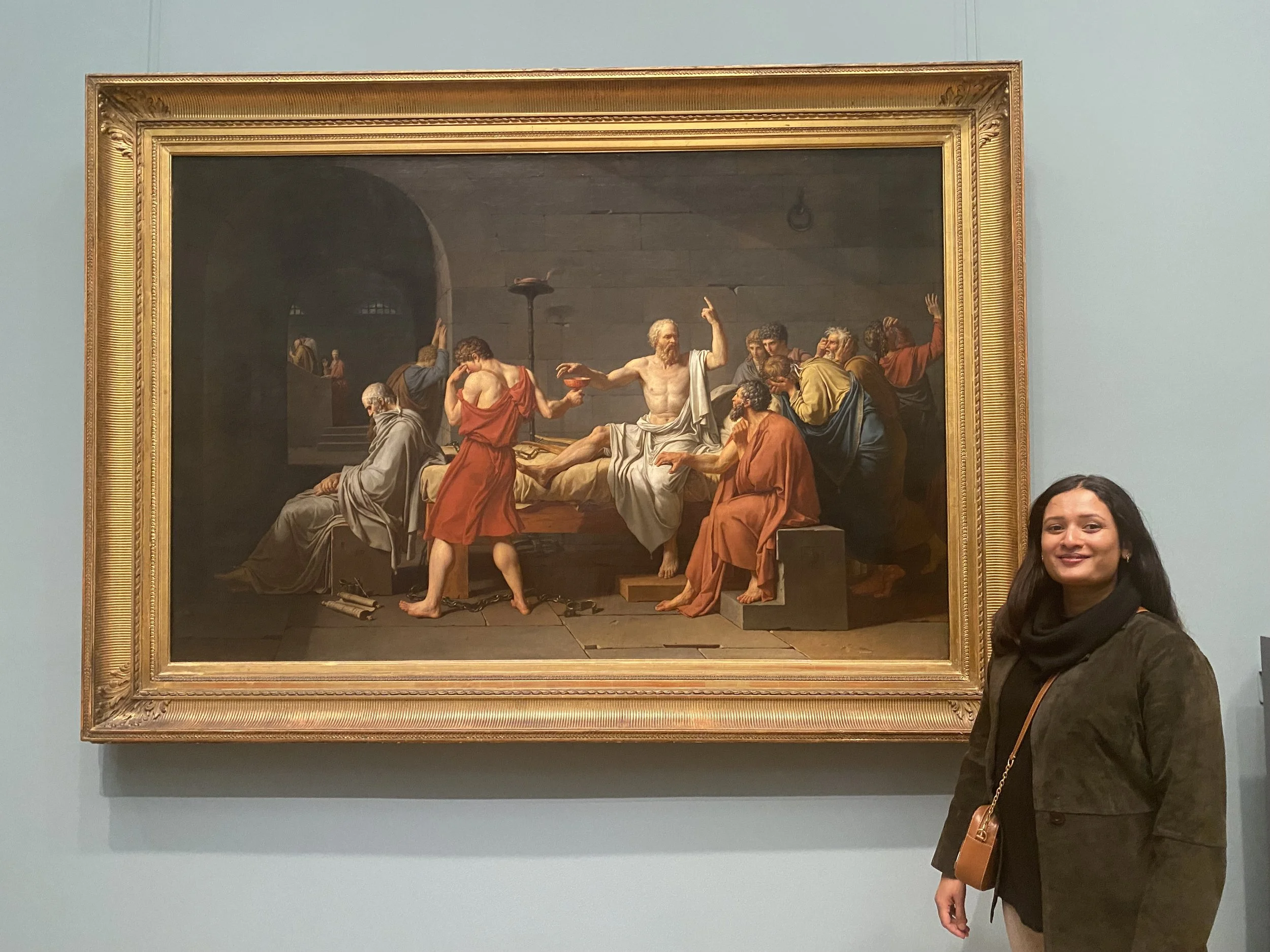Teaching
At Columbia University, I have taught the Core Curriculum in Contemporary Civilization (CC) since 2021, first as a Graduate Core Preceptor, and then as a Core Lecturer. CC is a year-long course that introduces students to major texts in the history of moral and political thought. I love teaching CC as it gives me a collaborative site where I can reflect on how big books shape knowledge, history, and power with students. I invite students to read these works through paradoxical lenses that are at once historical and contemporary, epistemological and ethical, idealist and realist, so they can see how ideas that sometimes ground morality also produce power.
I have also independently designed and taught a Columbia Global Core lecture course on Gandhi and His Interlocutors, which explores M.K. Gandhi’s political thought and action alongside his interlocutors, such as Leo Tolstoy, Martin Luther King Jr., Winston Churchill, Bhim Rao Ambedkar, Kamaladevi Chattopadhyay, and Isaiah Berlin among others. The course examines debates on non-violence, civil disobedience, religion, truth, caste, and empire. It places these debates within inter-war and anti-colonial imaginaries, the promises and limits of postcolonial democracy, and the consolidation of modern religions alongside democratic and civil rights movements of the 20th century.
I have also taught Anticolonialism, Constitutionalism, and Democracy in South Asia, a research seminar on public law and international relations that explores how new democracies that emerged from movements against the British Empire shape the political present and future of South Asia. Through themes such as anticolonialism, constitutionalism, state capacity, caste, climate, and emerging technologies, the course examines how new democratic projects in the twentieth century reshape the rich, thriving, yet contested terrain of South Asian politics.
Across all my courses, I aim to cultivate both intellectual rigor and ethical attentiveness so as to equip students to inhabit political thought and its diverse traditions critically and creatively. I design classrooms to be relational and collaborative spaces of learning, where students are invited to reflect on the worlds they come from and to shape rigorous, interdisciplinary modes of thought in return. I introduce students to new conceptual and methodological frameworks, and invite them to experiment with various media as legitimate modes of thinking.

